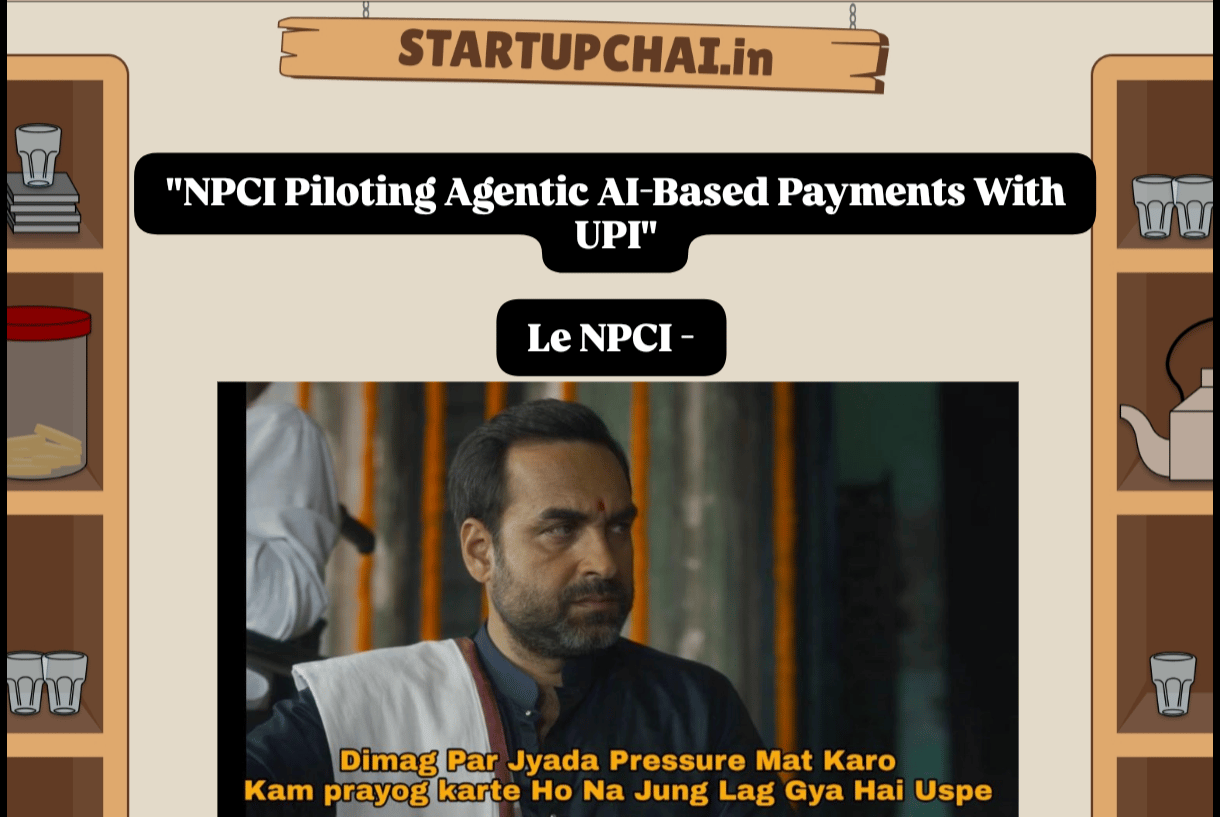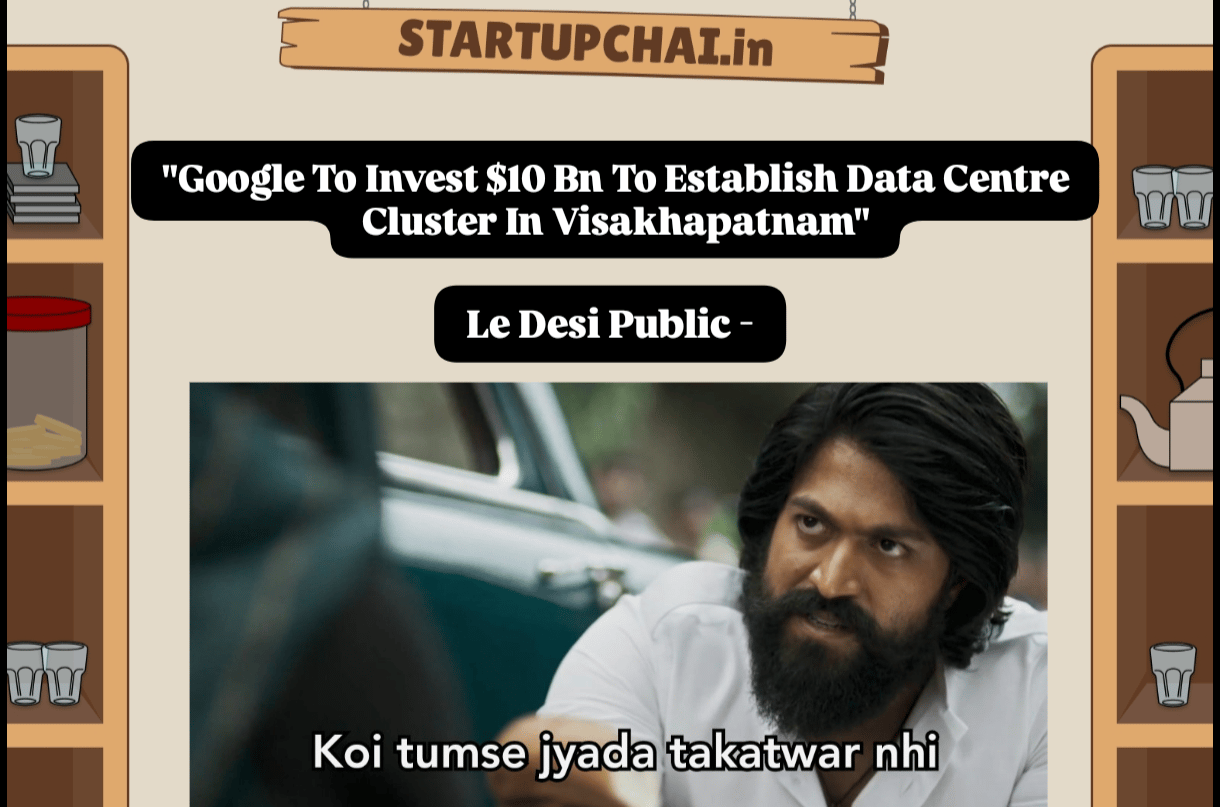- Startup Chai
- Posts
- The Lending Shake-Up, NPCI Piloting Agentic AI, and Google To Invest
The Lending Shake-Up, NPCI Piloting Agentic AI, and Google To Invest
Plus Zepto Appoints New CHRO, and fundraising news about Meolaa and Stackbox

India’s fintech lending boom was born out of convenience and loopholes rather than stability. Startups found a shortcut - they didn’t need their own lending licenses. Instead, they partnered with existing NBFCs or banks (called Regulated Entities) and acted as front-end apps, handling customer acquisition and disbursal. These Lending Service Providers (LSPs) targeted people banks often ignored - small business owners, gig workers, and salaried employees with low credit scores or limited paperwork. With smartphone access, digital KYC, and UPI, it was easy to lend small-ticket loans - ₹2,000 to ₹50,000 - with just a few taps. By 2024, the digital lending market had grown to around $200 million, serving millions who had never accessed formal credit before.
But the growth came at a cost. Many players charged annual interest rates (APRs) as high as 45% and used shady collection tactics like accessing contact lists, sending harassment calls, or even blackmail. A Maharashtra Cyber Cell report found over 1,900 complaints linked to such apps since 2020, while Google removed more than 3,500 lending apps in 2022 for violating policies.
The RBI stepped in hard. In June 2023, it capped the Default Loss Guarantee (DLG, earlier FLDG) at 5%, cutting the “insurance” fintechs offered NBFCs against bad loans. Before that, startups were guaranteeing up to 100% of portfolios - effectively becoming shadow banks without capital. Then in November 2023, the RBI increased the risk weight on unsecured consumer loans to 125%, making such credit costlier for lenders. These two moves forced fintechs to slow down, clean up, and rethink. Venture capital, which once fueled this “burn to grow” model, dried up. Fintech funding dropped 33% to about $1.9 billion in 2024, though India still ranked third globally.
Some big names fell along the way. ZestMoney, once the face of Buy Now Pay Later (BNPL), shut down after failing to meet capital and compliance needs. Capital Float, now rebranded as Axio, was eventually acquired by Amazon. Most recently, Niro shut down after struggling to raise capital in a more difficult regulatory environment. The survivors began shifting toward safer, secured products: FD-backed credit cards, payroll-linked loans, and co-lending models. These products are cheaper to fund, easier to collect, and regulator-approved.
Globally, India’s trajectory mirrors China’s failed P2P lending boom, where thousands of platforms collapsed under bad loans and fraud. The difference is that India is applying the brakes before a full-blown crisis. The US too faced a similar evolution - firms like LendingClub, once marketplaces, became licensed banks to survive. India’s fintechs are now headed the same way - from “apps” to “regulated institutions”.
The outcome is a market correction, not a collapse. The RBI didn’t kill digital lending - it killed recklessness. As capital becomes choosier and regulation gets tighter, the winners will be those who lend responsibly and build models that can survive without hiding behind guarantees or predatory tactics.
Let’s go through what else is happening in Indian startup world - Grab your simmering cup of StartupChai.in and unwind with our hand-brewed memes.

“Dimag Ghar Par Rakho”: NPCI Piloting Agentic AI-Based Payments With UPI
The NPCI just gave us a glimpse of the future of money moves as Agentic AI meets UPI. At the Global Fintech Fest 2025, it demoed chatbots that can literally think, decide, and pay for you, all with your permission, of course.
Imagine your AI ordering groceries or paying bills through voice or text, guided by your preferences - that’s “intelligent commerce” in action.
Read more here

“Ho Raha Bharat Nirman”: Google To Invest $10 Bn To Establish Data Centre Cluster In Visakhapatnam
Google is going big in India with a $10 billion investment. The tech giant is setting up a massive 1-gigawatt data centre cluster in Visakhapatnam, its first of this scale in the country.
The deal is set to be sealed on October 14, marking a major boost for Andhra Pradesh’s tech ambitions.
Read more here


“Tera Mera Milna Double Dhamal”: PlaySuper is turning mobile gameplay into real-world rewards
PlaySuper wants to change how Indians play and pay in mobile gaming. By turning in-game achievements into real-world rewards, it’s tackling the industry’s biggest problem: player retention.
As India’s $4.38 billion gaming scene levels up, PlaySuper is betting that rewards, not ads, will keep gamers coming back.
Read more here

“Aaiye Aapka Intezaar Tha”: Zepto appoints new CHRO
Zepto has a new people leader at the helm. The quick commerce unicorn has appointed Sneha Arora as its Chief Human Resources Officer to steer its next phase of growth.
Her focus will be on strengthening culture, belonging, and employee experience as Zepto races ahead in India’s hyper-competitive delivery space.
Read more here

Meolaa has raised $6 million in a round led by General Catalyst, with participation from Claypond Capital, Colossa Ventures, and CRED’s Kunal Shah. The startup plans to use the funds to launch two new beauty and personal care brands over the next 18 months.
Read more hereTheia Ventures has announced the first close of its maiden $30 million fund aimed at backing early-stage startups. The fund will focus on deeptech, energy transition, and decarbonization, with plans to invest $500K-$1 million in 18-20 ventures.
Read more hereLogistics tech startup Stackbox is gearing up for its Series A round at a valuation of over $40 million. The Bengaluru-based company is set to raise around $2.63 million from Enrission India Capital and White Whale Ventures to fuel its next phase of growth.
Read more here
How did today's serving of StartupChai fare on your taste buds? |